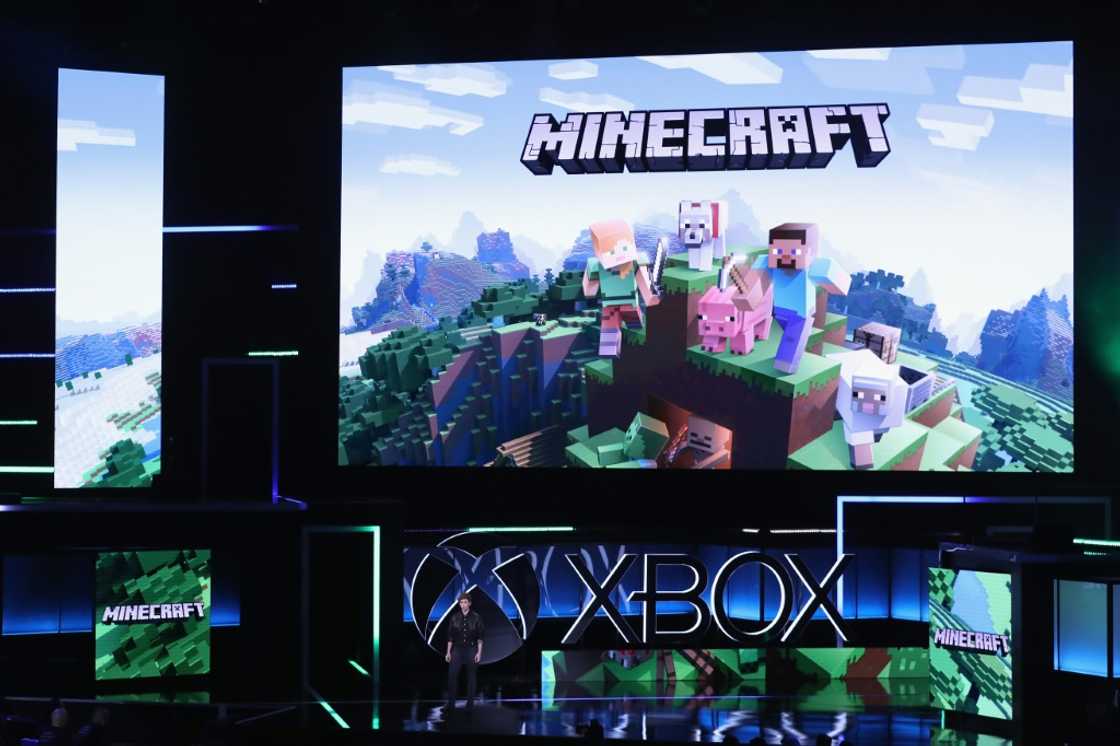Sweden's small game studios punching above their weight

Source: AFP
"Minecraft", "Valheim", and "Raft", just to name a few: Small or even one-man teams from Sweden have produced more video game hits than one would expect from a small country.
"It's the cold weather -- you sit inside, you game, you don't really have anything to do outside," Philip Westre, who co-founded the small game developer Landfall, mused when asked to explain the success of Sweden's gaming industry.
Housed in a villa in a sleepy suburb west of Stockholm, the studio -- which has around 10 employees -- has just had a surprise hit of its own.
The walls of the small corner office are adorned with inspirational artwork from Japanese animator Hayao Miyazaki, framed covers of old games and a shelf with plush toys.
In line with their tradition of new releases on April 1, they recently published their latest game: "Content Warning".
The object of the goofy multiplayer romp is to film your friends being scared and upload the videos to the imagined social media platform SpookTube -- hoping for them to go viral.
PAY ATTENTION: All celebrity news in one place! Follow YEN's Facebook Broadcast channel and read on the go.
To help get the ball rolling, Landfall decided the game would be free for one day, but did not invest in any advertising.
To the company's surprise, over six million people jumped at the offer in the first 24 hours.
Programmer Zorro Svardendahl said one of the company's goals was to beat their previous record for the number of people playing at the same time on gaming platform Steam.
Known as concurrent players, the metric is commonly used in the industry to assess a game's popularity. Landfall's previous record was 29,000.
"Day two, I think we reached 200,000 ... which is pretty wild," Svardendahl told AFP.
Moving fast
"Content Warning" is only the latest example of small Swedish teams finding massive success.
In early 2021, the Viking-themed "Valheim" -- created by a five-person team -- was released by the studio Iron Gate and quickly found a global audience, going on to sell over 12 million copies.
Another breakout hit, "Raft" -- where players are tasked with surviving aboard a raft floating in the ocean -- was created by three students attending Uppsala University.
The most famous example is of course "Minecraft", which was first developed by one person: Markus "Notch" Persson.
Since its original release on May 17, 2009, "Minecraft" has become the best-selling video game in history, with the company Mojang announcing in 2023 it had surpassed 300 million units sold.
"I think that small teams can work and move really fast," Svardendahl said.
Decisions can be made by individuals based on what feels right, rather than having to negotiate approvals through multi-tiered corporate bureaucracy, he explained.
Svardendahl believes the more nimble approach of a smaller team was key to the success of "Content Warning", which was developed in a mere six weeks.
But some of Sweden's game developers have grown into major studios with hundreds of employees, such as DICE -- creators of the "Battlefield" series -- and Massive Entertainment -- currently developing the upcoming "Star Wars Outlaws".
The Nordic country is also home to video game behemoth Embracer, which controls a slew of studios and owns the "Tomb Raider" franchise.
Despite having a population of just 10.5 million people, Swedish games have been downloaded seven billion times, according to the Swedish Games Industry, which estimates that every fourth person in the world has played a game made in Sweden.
In 2022, the country's game developers had a combined revenue of 32.5 billion kronor ($3 billion).
Per Stromback, president of the Swedish Games Industry, said several factors explained the country's gaming success.
It has a number of quality schools training a competent workforce, as well as a culture conducive to teamwork.
'Self-fulfilling prophecy'
In addition, Sweden's small size meant developers sought out an international audience early on.
"We now also have several decades of tradition in the industry," Stromback told AFP.
The first seeds of the Swedish scene can be found in the "nerd culture" of the 1980s, he said.
The pioneers learned programming on Commodore 64 computers, while they picked up game mechanics from role-play games.
"Nobody then realised that it would become a billion-dollar industry," Stromback said.
At Landfall, Westre pointed out that Swedes are also big gamers themselves.
"Gaming culture is very, very strong here, both on gaming and development," he said.
Svardendahl added that the culture had begun to feed itself, with younger developers inspired by their predecessors.
As "a really big Minecraft fan", he himself was psyched when he learned the game had been developed in his home country.
"It's a bit of a self-fulfilling prophecy. Because I knew people made games in Sweden, I knew I could make games in Sweden."
PAY ATTENTION: Stay informed and follow us on Google News!
Source: AFP





